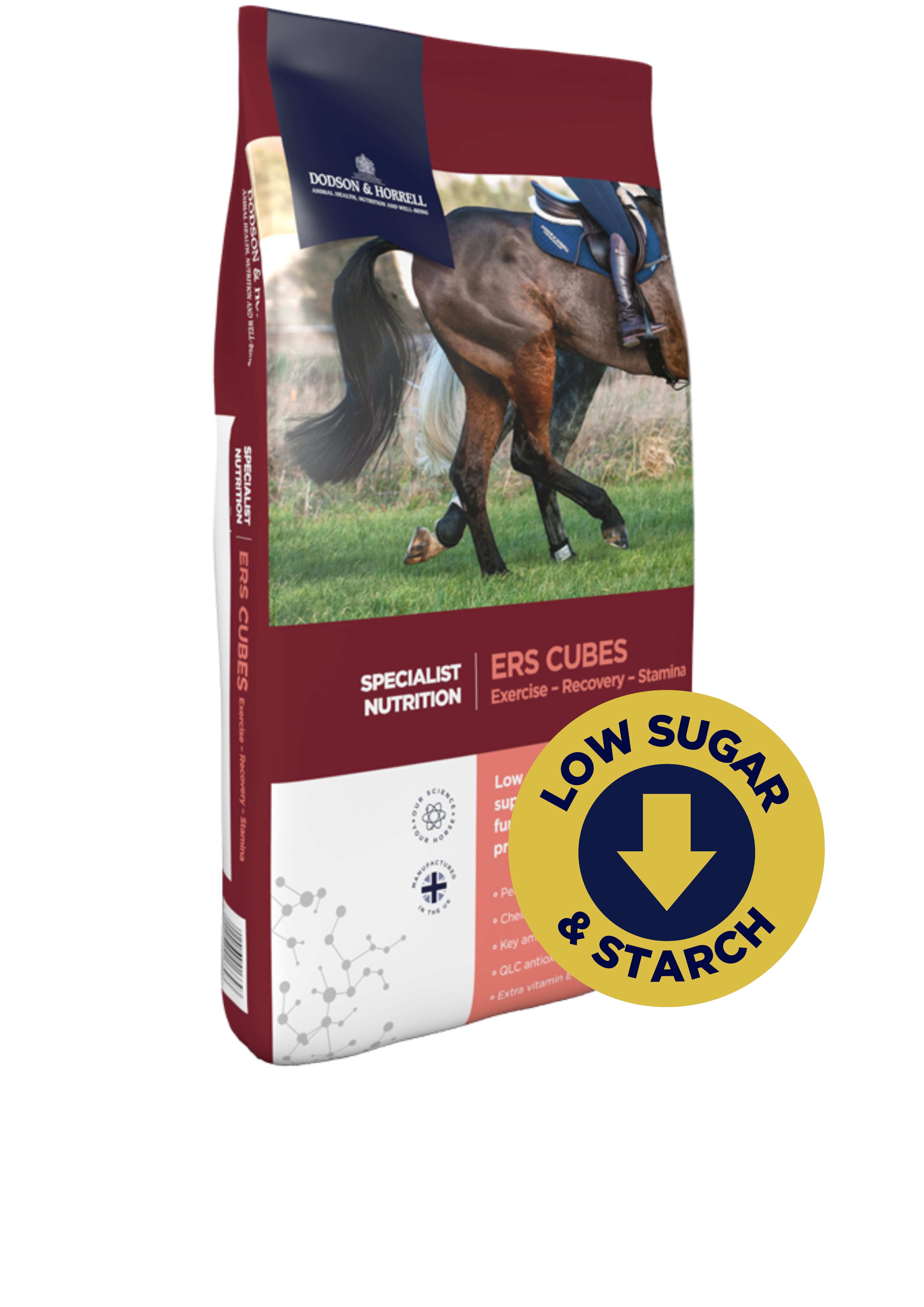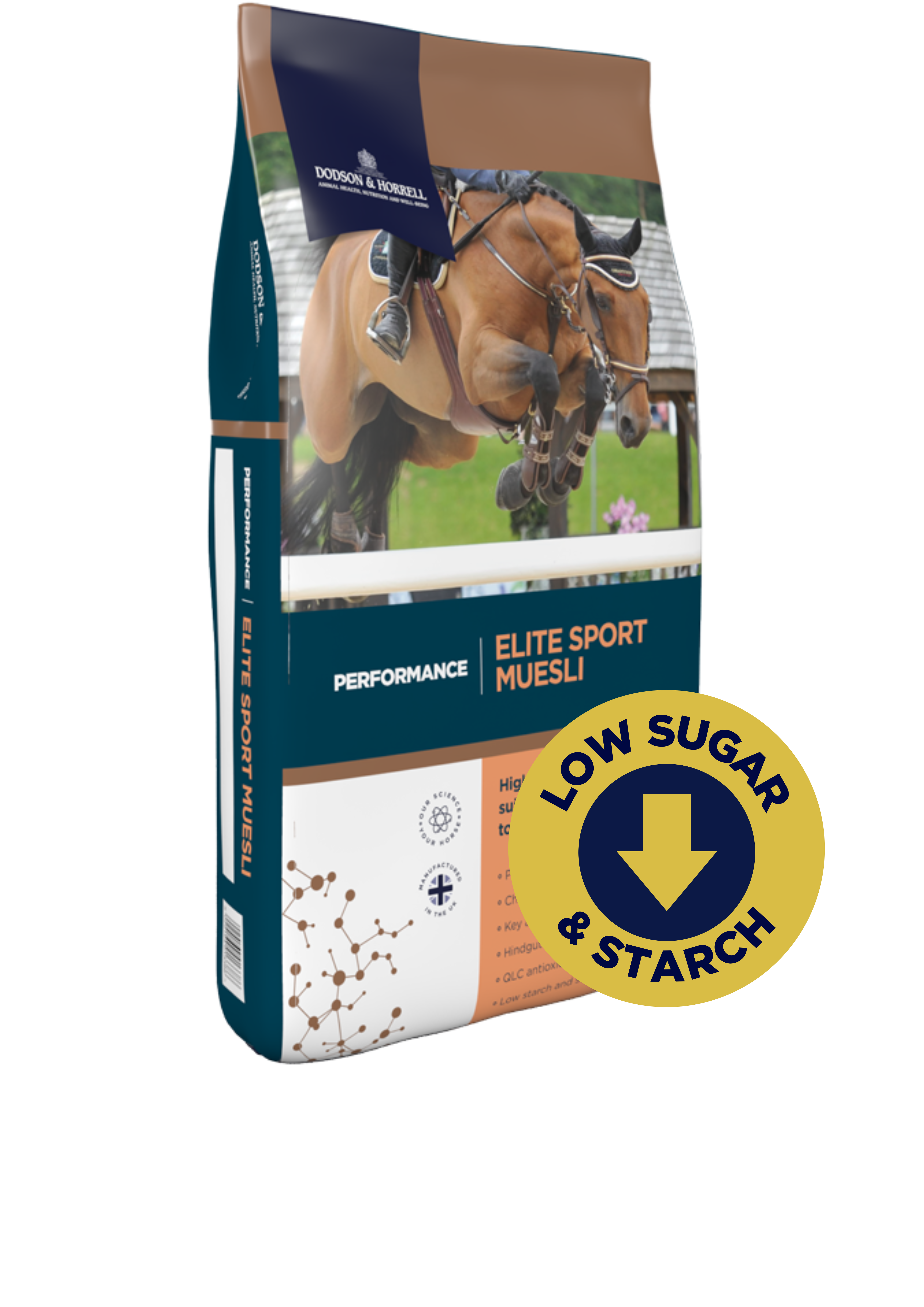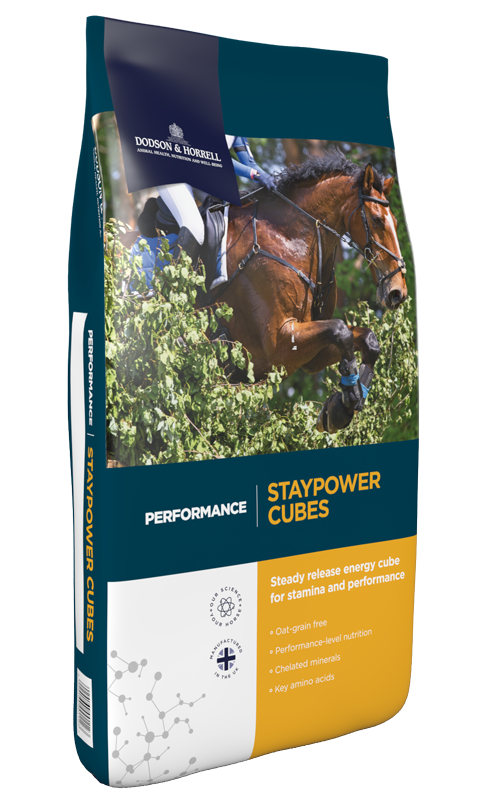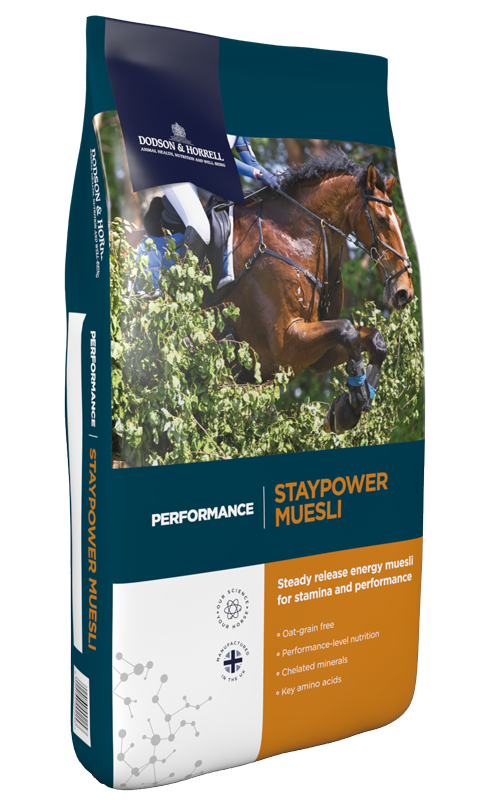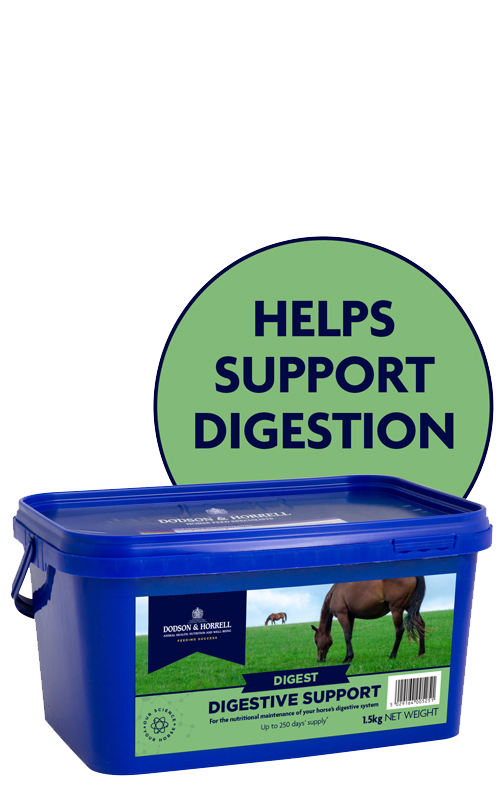Feeding the ex-racehorse
After retiring from racing Thoroughbreds undergo huge changes in their diet and routine. Managing this carefully is very important to keep your ex-racehorse happy and healthy!
Adjust Calories to their Workload:
- On retiring from racing your horse will be using far fewer calories than they were in training
- It is important to reduce their calorie intake to reflect this – if this is not done it can lead to problems such as obesity or tying up
- Their diet should be gradually changed according to their new workload
- Our Nutritional Advisors can provide you with more information on how much to feed and which feeds will be most suitable
Pasture Mix or Cubes could be ideal forThoroughbreds who will be in light work. Thoroughbreds going into medium or hard work could thrive on our Staypower Muesli or Cubes.
Make All Dietary Changes Gradually:
- Racehorses are typically fed large amounts of cereal-based feeds and due to risk of injury and intense training regimes many will have limited access to pasture
- The micro-organisms in their digestive tract will have adapted to a high starch, low fibre diet
- Sudden turnout onto lush pasture could lead to digestive upsets - it is better to start on a diet similar to what your horse is used to and gradually increase grazing and decrease concentrates
- Change your ex-racehorse over to their new diet slowly over a period of 2 to 4 weeks
- Yea-Sacc and Digestive Support could help to maintain healthy hindgut function during this period
Feeding the Ex Racehorse
Increase Dietary Fibre:
- Horses should eat between 2 and 2.5% of their bodyweight in fibre per day
- Racehorses often receive a lot less than this which can lead to gastric ulceration or stereotypic behaviours
- It is important to gradually increase your horse's fibre intake through hay, haylage or pasture
Feeding a chaff such as Fibergy or Alfalfa with meals is a great way to add essential fibre to their diet
Be Aware of Possible Clinical Conditions:
- Studies show that 90% of racehorses in training suffer from gastric ulceration and many are prone to tying up
- You can protect against gastric ulcers by reducing the starch and sugar content and increasing the fibre in your horse's new diet
- ERS Cubes and Elite Sport Muesli are high in calorie yet low in sugar and starch so could be ideal for ex-racehorses in medium or hard work
If you have any concerns it could be helpful to ask your vet to perform a dental and clinical check up
Weight and Fat Score Regularly:
- It can be challenging to keep your ex-racehorse at a healthy bodyweight once they are out of training
- Some may need to build up some condition, others may be at risk of becoming overweight once their workload is reduced
- We recommend estimating your horse’s weight every fortnight using our scientifically validated weigh tape
- Fat Scoring every fortnight can also help, you should aim for a fat score of between 2.5 and 3 out of 5
- This will allow you to adjust their feed accordingly as their requirements change
Recommended Feeds:
- Digestive Support = A combined approach digestive supplement containing Yeast, Pre-biotics and Psyllium for the nutritional maintenance of healthy hindgut function and pH. Ideal for horses undergoing dietary change or a change of environment.
- Staypower Cubes/ Muesli = Steady release energy cube for stamina and performance. Could be ideal for ex-horses in medium to hard work.
- Elite Sport Muesli = A high-performance feed suitable for ex-racehorses in hard work prone to gastric ulceration
- ERS Cubes = Low starch, high oil cubes supporting healthy muscle function and suitable for horses prone to gastric ulceration
Contact us for advice on how to get the best from your horse
Call our helpline
01270 782223or use our
LiveChat


